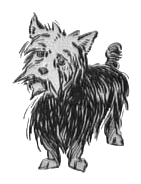 |
| Image by Brigitte Werner from Pixabay |
As with my earlier posts on terms that come from the world of printing, such is the case with nautical terms that entered the language in some form. I gained some inspiration for this post from an essay by Hester Blum about her brief voyage on a 19th-century whaling ship.
"Think of all the idioms for competency that come from seafaring: knowing the ropes, crackerjack, all told, first rate, flying colors. There are plenty of nautical expressions for incompetency, too: deadwood, over a barrel, run afoul, scraping the bottom of the barrel. My expertise in the language and literature of sailing does not necessarily translate to manual or experiential fluency, nor did I expect it to."
Some of these terms have fallen out of fashion. As a child, I would hear adults tell us kids to "pipe down" meaning to get quiet. Aboard a ship, the boatswain's pipe, or whistle, is used to summon a crew, relay orders and dismiss them. To dismiss a crew, the boatswain piped and the command "pipe down" is given. After dismissal, things were quiet and the command became associated with quieting down or making less noise.
 |
| Boatswain's whistle, pipe, or bosun's pipe |
The phrase “know the ropes” comes from sailing where ropes, or lines, are important to navigating and steering the ship. One who knows the ropes has experience in sailing.
"Crackerjack" isn't just a snack food that appeared in the 1890s. In the late 19th-century crack and jack were merged into a new word. Cracker is an elongation of crack which is an adjective meaning "expert" or "superior" that dates from the 18th century, as in "He is a crack shot with a rifle." Even earlier, "crack" was a noun meaning "something superior" and a verb meaning "to boast."
"Jack" has been used for "man" since the mid-1500s. We find it in the expression "jack-of-all-trades" and in nautical terms as "Jack Tar" to mean a sailor. (The "tar" comes from the coating on ropes.) Crackerjack entered English as a noun referring to "a person or thing of marked excellence," and then was used as an adjective.
"All told" is an idiom we don't hear very much these days. It means with everything or everyone taken into account. "All told there will be 75 people attending." It was once used on board ships to indicate all were present.
"First-rate" has its origin in the rating "A1" which was used to mean "having the highest qualifications" in reference to commercial ships. Lloyd's of London used this rating system. Shipping was very important in Britain in the 18th and 19th centuries, and Lloyd's rating system became known beyond shipping to mean "of the finest quality" or "first-rate."
The term "flying colors," as in "she passed the test with flying colors" and "showing your true colors" to mean to reveal one's character (usually used in a negative way) both come from a sailing practice. At one time, ships hoisted their national flags ("fly their colors") before commencing battle, BUT some ships would carry flags from many countries and hoist "false flags" to confuse or mislead their enemies rather than show their "true colors."





